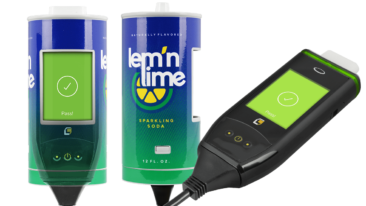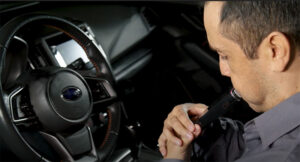Lowest Cost Ignition Interlock
LOWER 2025 PRICING – BI-WEEKLY PAYMENTS – FREE SHIPPING*

Get the Can FREE!*
Reserva una Instalación
Call (844) 387-0326 – No Wait Times
Exclusive CADTP Partner!
*RESTRICTIONS APPLY. INTERLOCK CAN IS FREE WITH PURCHASE OF OPTIONAL PROTECTION PLAN. FREE SHIPPING APPLIES TO STANDARD RATE SHIPPING. ACTIVATION FEE STILL APPLIES.
Ignition Interlock Device Laws in New Mexico
Low Cost Interlock is a leading provider of ignition interlock device services in New Mexico, including installation, calibration, and maintenance. All of our services are backed by the skilled work of our technicians and customer service representatives. Our proprietary ignition interlock device offers greater accuracy and efficiency for faster, more reliable results with every breath sample.
Ignition Interlock Device Laws in New Mexico
New Mexico has admin per se laws enforced by the Motor Vehicle Division. These laws allow for the immediate confiscation and suspension of your license if you refuse or fail a chemical test administered by an officer who suspects you may be driving while intoxicated. For a first offense chemical test failure, you may suffer a six-month suspension. A second offense results in a one-year suspension. Refusing a chemical test automatically results in a one-year suspension with no restricted driving privileges.
All admin per se penalties are in addition to any criminal penalties you may incur if you are found guilty of a DWI in court. Criminal penalties can vary based on the circumstances of a case, including your age, damage to property, and any injuries you may have caused. A first offense DWI may result in:
- A one-year license suspension
- Up to $500 in fines
- Community service
- A $65 BAC test fee
- Fees for court-ordered treatment ad screening
Subsequent offenses often result in harsher penalties, which means longer suspension periods and higher fines. Second and subsequent offenses also come with mandatory jail time. By your fourth offense, you may suffer a permanent license suspension.
You may qualify for a restricted license, which requires you to install an ignition interlock device in your vehicle. The court may also require an ignition interlock device as part of the general penalties. Your IID must be installed and serviced by a court-approved provider, and you are responsible for all fees involved.
Learn more about New Mexico DUI laws and penalties here.
General Information
WHAT IS DWI?
- In New Mexico, it is illegal to drive with a breath or blood alcohol concentration of .08 or more if you’re 21 or over, or .02 if you’re under 21, or .04 if you drive a commercial vehicle.
- If your breath or blood test is at or above the legal limit, or if you refuse to take the breath or blood test, you will lose your license, in most cases for a year.
- You can be convicted of DWI even if the breath or blood test is below the legal limit if it is proven that your ability to drive was impaired to the slightest degree by drugs or alcohol.
- People who drive after drinking risk heavy fines, higher insurance rates, loss of license and jail sentences.
Drinking and Driving is Dangerous
Alcohol is involved in about 40% of the traffic crashes in which someone is killed.
DO NOT DRINK AND DRIVE! THERE IS NO SAFE AMOUNT OF ALCOHOL!
Even one drink of alcohol can affect your driving.
An alcohol drink is 1 1/2 oz. of 80-proof liquor (one shot glass) straight or with a mixer, 12 oz. of beer (a regular size can, bottle, or glass) or a 5 oz. glass of wine. Specialty drinks can have more alcohol in them and are the same as having several normal drinks.
Your body gets rid of one alcoholic drink per hour. There is no way to sober up quickly. Coffee, fresh air, exercise or cold showers will not help. Time is the only thing that will sober you up. The best plan is to designate someone who is not drinking to be the driver, or make other plans before you start to drink about how you will get home.
The Effects of Alcohol
Alcohol quickly affects judgment, vision, concentration, speech and balance. Everyone metabolizes alcohol differently. It is difficult to predict how many drinks will put you at or over the legal limit.
Alcohol slows your reflexes and reaction time, reduces your ability to see clearly and makes you less alert. As the amount of alcohol in your body increases, your judgment worsens and your skills decrease. You will have trouble judging distances, speeds and the movement of other vehicles. You will also have trouble controlling your vehicle.
Alcohol reduces all of the important skills you need to drive safely. Alcohol goes from your stomach into your blood and to all parts of your body. It reaches your brain in 20 to 40 minutes. Alcohol affects those areas of your brain that control judgment and skill. This is one reason why drinking alcohol is so dangerous. It affects your judgment and reduces your ability to know when to stop drinking.
Other Drugs and Driving
Besides alcohol, there are many other drugs that can affect a person’s ability to drive safely. These drugs can have effects like those of alcohol, or even worse. This is true of many prescription drugs and even many of the drugs you can buy without a prescription.
Drugs taken for headaches, colds, hay fever or other allergies or those to calm nerves can make a person drowsy and affect their driving. Pep pills, uppers and diet pills can make a driver feel more alert for a short time. Later however, they can cause a person to be nervous, dizzy, unable to concentrate, and they can affect your vision. Other prescription drugs can affect your reflexes, judgment, vision and alertness in ways similar to alcohol.
Driving under the influence of any drug that makes you drive unsafely is against the law.
If you are driving, check the label before you take a drug for warnings about its effect. If you are not sure it is safe to take the drug and drive, ask your doctor or pharmacist about any side effects.
Never drink alcohol while you are taking other drugs. These drugs could multiply the effects of alcohol or have additional effects of their own. These effects not only reduce your ability to be a safe driver but also could cause serious health problems, even death.
Illegal drugs are not good for your health and affect your ability to be a safe driver.
Studies have shown that people who use marijuana make more mistakes, have more trouble adjusting to glare and get arrested for traffic violations more than other drivers.
Alcohol and the Law
If you are found guilty of DWI and it is your first conviction, you will pay stiff fines and court costs, and you could be sentenced to jail. You will also be ordered to treatment and to install an ignition interlock device on your vehicle. MVD has the authority to revoke your driver license. Subsequent DWI convictions will result in increased fines, more jail time and a longer license revocation. Any DWI conviction will remain on your driving record for 55 years.
DWI and Administrative License Revocation
If you are arrested for DWI, your license will be confiscated on the spot if your breath test is at or above the legal limit, or if you have refused to take the test. The police officer takes away your license and notifies the Motor Vehicle Division, which then revokes it for up to one year. This action is called an Implied Consent or an administrative revocation and is completely separate from anything that happens when you go to court for DWI. If you are convicted in court, your license will also be revoked in a separate court action.
When your license is confiscated by the police officer you have 20 days before the revocation takes effect. If you want to protest the revocation, you must request an administrative hearing within 10 days of your arrest. The request must be in writing and be accompanied by a $25 hearing fee, or a sworn statement of indigency. The hearing will take place within 90 days.
The issues that will be discussed in your hearing are very limited. These issues are:
- that the officer had reasonable grounds to stop you;
- that you were arrested;
- that the hearing was held within 90 days of your notice of revocation;
- if you refused the test, that the police officer notified you that you could lose your license; and/or
- that the chemical test was administered properly, and you tested at or above the legal limit.
The only exception to the one-year revocation of your license is:
- if you have never had an administration revocation for DWI before, and
- if you didn’t refuse to take the breath test.
If you are revoked for a DWI, you cannot qualify for any kind of license except an ignition interlock license.
Once your license is revoked, it stays revoked until you reinstate it.
The penalties for driving while revoked are severe. You can be sentenced to jail for up to a year (mandatory jail seven days) and can be fined up to $1,000 (mandatory fine is $300).
Your car can also be “booted” or immobilized for 30 days so you can’t drive it.
REVOCATION PERIODS
Your driver’s license can be revoked for both a violation of the Implied Consent Act and a DWI conviction through a criminal court. The revocation periods are as follows:
Implied Consent* – Over 21 years of age (at or above 0.08%)
1st Offense – 6 months for failing a chemical test
1st Offense – One year for refusing a chemical test
2nd or Subsequent Offense – One year for failing or refusing a chemical test
Implied Consent* – Under 21 years of age (at or above 0.02%)
1st and subsequent – One year for failing or refusing a chemical test
Criminal Conviction of DWI in Court
1st Offense – One Year
2nd Offense – Two Years
3rd Offense – Three Years
4th or Subsequent Offense – Lifetime
Arrest or Criminal Conviction for a DWI
Those with a commercial driver license arrested or convicted of a DWI, whether or not operating a commercial vehicle:
1st Offense – One year disqualification
2nd Offense – Lifetime disqualification
*Implied Consent – Refusal to submit to a breath/ blood test; failure of breath/ blood test, or blood alcohol content (BAC) at or above .08 (or BAC at or above .02 for persons less than 21 years of age, or at or above .04 for person driving a commercial motor vehicle).
For More DWI Resources Click on the following Links

